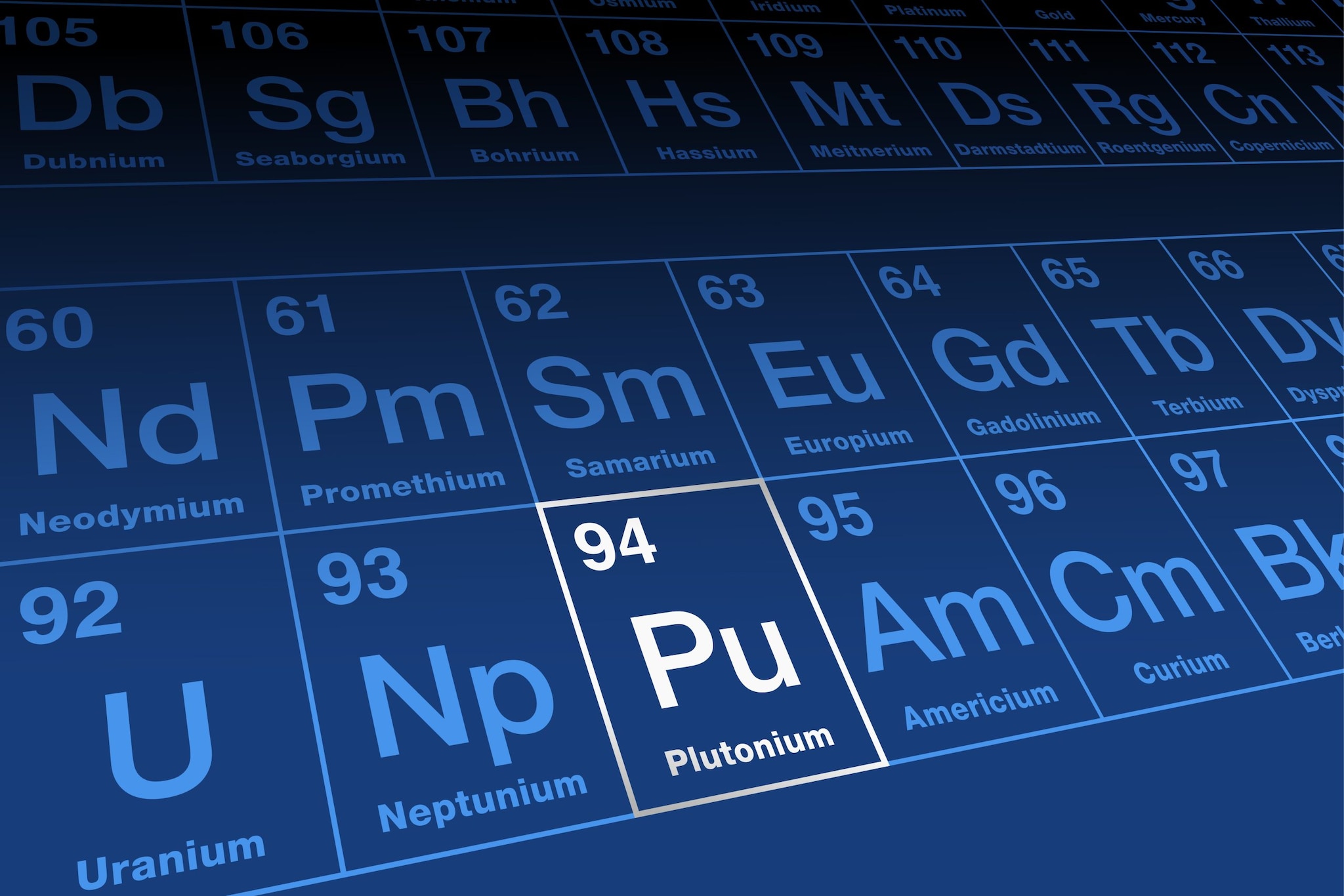At a glance
Plutonium is created from uranium in nuclear reactors. Because it emits alpha particles, plutonium is most dangerous when inhaled. The alpha particles can kill lung cells and may lead to lung disease and cancer. Plutonium that is ingested from contaminated food or water does not pose a serious threat to humans.

Properties
Plutonium-238 (Pu-238) Half-life: 87.7 years
Plutonium-239 (Pu-239) Half-life: 24,110 years
Plutonium-240 (Pu-240) Half-life: 6,564 years
Mode of decay: Alpha particles
Chemical properties: Solid under normal conditions, plutonium can form compounds with other elements.
Use
Plutonium-238 generates significant heat through its radioactive decay process. This makes it useful as a heat source for sensitive electrical components in satellites. Plutonium-238 is also used as a power source (for example, battery power) for satellites. Plutonium-239 is used to make nuclear weapons. Pu-239 and Pu-240 are byproducts of nuclear reactor operations and nuclear bomb explosions.
Origin
Plutonium is created from uranium in nuclear reactors. It is a by-product of nuclear weapons production and nuclear power operations.
Form
Plutonium is a solid material made into rods for use in nuclear reactors and into ceramic buttons for satellite systems.
What plutonium looks like
Plutonium is a silvery-gray metal that becomes yellowish when exposed to air. Most plutonium in the environment is in the form of microscopic particles. These microscopic particles are the remnants of nuclear weapons testing and nuclear reactor accidents.
Risk
Because it emits alpha particles, plutonium is most dangerous when inhaled. When plutonium particles are inhaled, they lodge in the lung tissue. The alpha particles can kill lung cells, which causes scarring of the lungs, leading to further lung disease and cancer. Plutonium can enter the blood stream from the lungs and travel to the kidneys. This exposes the blood and the kidneys to alpha particles.
Once plutonium circulates through the body, it concentrates in the bones, liver, and spleen, exposing these organs to alpha particles.
Plutonium that is ingested from contaminated food or water does not pose a serious threat to humans. The stomach does not absorb plutonium easily and so it passes out of the body in the feces.
Resources
- Frequently Asked Questions (FAQs) About a Radiation Emergency
- What to Do in Radiation Emergencies
- DTPA (Diethylenetriamine pentaacetate)
- Public Health Statement for Plutonium (Agency for Toxic Substances and Disease Registry)
- Plutonium Basics (Environmental Protection Agency)
